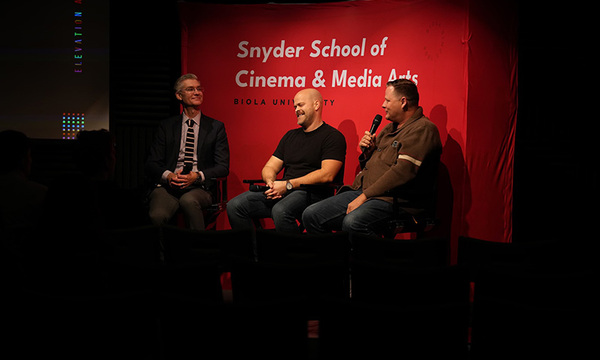On Wednesday, Sept. 28, a commemorative ceremony was held at Forest Lawn Memorial Park in Glendale, Calif. at the gravesite of Biola’s first administrative Dean William E. Blackstone in celebration of his 175th birthday. The ceremony honored Blackstone’s humanitarian efforts by celebrating the impact he had through his advocacy of developing respectful relationships between Jews and Christians.
After visiting Europe and the Middle East in the late 1880’s and early 1890’s, Blackstone was deeply moved by the oppression he witnessed on Russian Jews and became inspired to help them find refuge in Palestine after being forcibly removed from their villages in Russia. He returned to the states with a renewed sense of oppression many Jews face and quickly gathered a group of religious leaders and scholars for a historic multi-faith conference, “The Past, Present, and Future of Israel.” He continued his efforts by creating a petition calling for Russian Jewish refugees to be able to return to their homeland. The petition received over 400 signatures and historians still consider it to be one of the most significant documents in American Zionist history to this day. Blackstone would continue to advocate for the Jews for the rest of his life by holding conferences and meetings as well as updating and presenting his petition to U.S. presidents.
Some of Blackstone’s family members attended the ceremony as well as a variety of invited guests including rabbis, historians, pastors, and many other representatives from educational organizations. Biola’s President Barry H. Corey was in attendance representing Biola as well as Professor Paul Rood who gave words of tribute, as he was one of the main organizers of the ceremony. Other speakers included Dr. Michael Oren, Israel’s Deputy Minister for Diplomacy, Sam Grundwerg, Consul General from Israeli Consulate of Los Angeles, Rabbi Yitzchok Adlerstein, Director of Interfaith Affairs at the Simon Wiesenthal Center, and Reverend Jim Tolle, Senior Pastor of the El Camino Church.
Blackstone played a significant role in Biola’s history as the first administrative dean. He was was instrumental during the school’s developmental years. In 2015, Biola opened its newest residence hall — Blackstone Hall — named after Blackstone to honor him and his significant contributions to Biola.
 Biola University
Biola University
_(1).jpg)
